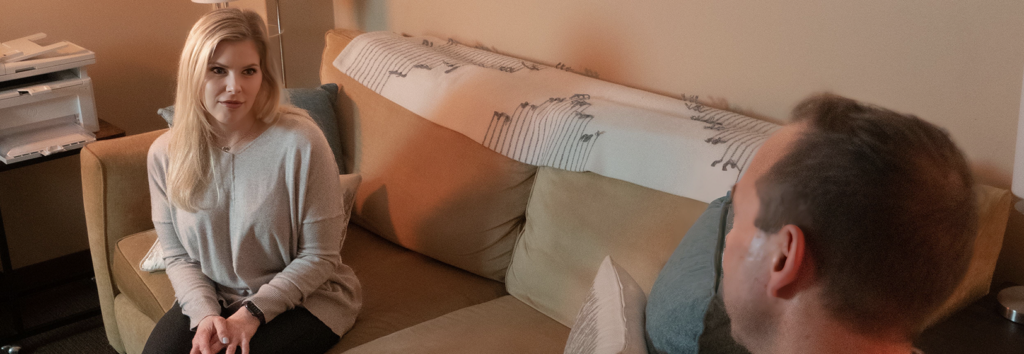Life invariably comes with many unpredictable twists and turns. This is a fact we all must eventually wrestle with in order to find inner peace. However, even the strongest of us can be thrown off when it comes to a painful loss, the death of a loved one, or an unexpected tragedy we never could have seen coming. Death comes in many forms, and is not limited to biological death. Relationships can die, careers can die, dreams can die: all of these unfortunate events can truly test and probe our deepest emotional core and reveal vulnerabilities we never knew we had.


When the unexpected happens and our foundations are shaken, it is important to not suffer in isolation, though we may be tempted to do so out of pride, shame, or avoidance. Grief counseling, while it can’t change the past or bring back a loved one, can be a much-needed lighthouse in a dense fog of confusion and pain. Rosetta Mental Health’s therapists are trained to meet you exactly where you are, with no judgment, no agenda, no magic words that sound pretty but mean nothing. We will provide you a safe, private space with a person-centered, empathic approach to help you say what you need to say, and feel what you need to feel. With unconditional, positive regard, our therapists will be with you to facilitate your healing.

Grief and loss therapy, also known as grief counseling or bereavement therapy, is a specialized form of therapy that focuses on helping individuals cope with the emotional and psychological challenges associated with loss. This therapy aims to provide support, guidance, and tools to navigate the grieving process and ultimately find healing and acceptance.
Grief and loss are universal human experiences that can be triggered by various types of loss, such as the death of a loved one, the end of a significant relationship, the loss of a job, or even the loss of a cherished dream. Grief is a complex and individualized process that can manifest in different ways for different people. Some common emotions experienced during grief include sadness, anger, guilt, loneliness, and confusion. It’s important to note that there is no right or wrong way to grieve, and everyone’s journey through grief is unique.
Grief and loss therapy employs different therapeutic techniques and approaches to help individuals navigate their grief. One common approach is “grief work,” which involves creating a safe space for clients to express their feelings and thoughts about their loss openly. This process allows individuals to explore their emotions, memories, and beliefs associated with the loss, facilitating healing.
Therapists may also use cognitive-behavioral techniques to help clients challenge and reframe negative thoughts and beliefs that may be hindering their ability to cope with grief. Additionally, mindfulness and relaxation techniques can be beneficial in managing stress and promoting emotional well-being during the grieving process.
Support groups can also be an integral part of grief and loss therapy. Group therapy provides individuals with a supportive community of people who are experiencing similar challenges. It allows for sharing stories, emotions, and coping strategies, fostering a sense of belonging and reducing feelings of isolation.
Grief and loss therapy acknowledges that grief cannot be “fixed” or “cured” but rather a process of learning to live with the loss and find meaning in life again. The therapeutic relationship between the client and the therapist is built on trust, empathy, and validation, creating a safe and supportive environment for the client to explore their grief.
It’s essential to recognize that grief and loss therapy is not solely focused on the immediate aftermath of a loss but can be beneficial at any point in the grieving process. Some individuals may seek therapy years after a loss, as anniversaries or significant life events can trigger renewed grief and emotional distress.
In conclusion, grief and loss therapy is a specialized form of therapy that helps individuals cope with the emotional and psychological challenges associated with loss. It provides support, guidance, and tools to navigate the grieving process and find healing. Through various therapeutic techniques and approaches, individuals can explore their emotions, challenge negative thoughts, and find meaning in life again. Grief and loss therapy acknowledges that grief is a unique and personal journey, and therapists work to create a safe and supportive space for individuals to navigate their grief.
If you would like to learn more about therapy for grief and loss, please get in touch with us.
(504) 315-2420
Mon - Fri:
8am - 6pm
433 Metairie Road
Suite 202
Metairie, LA 70005